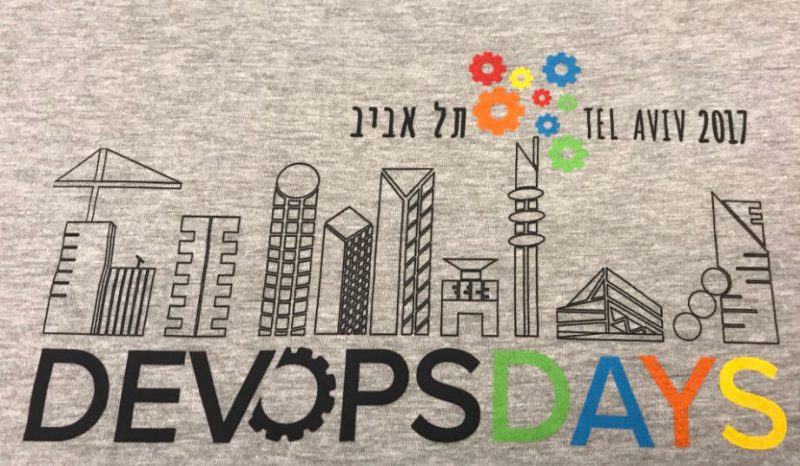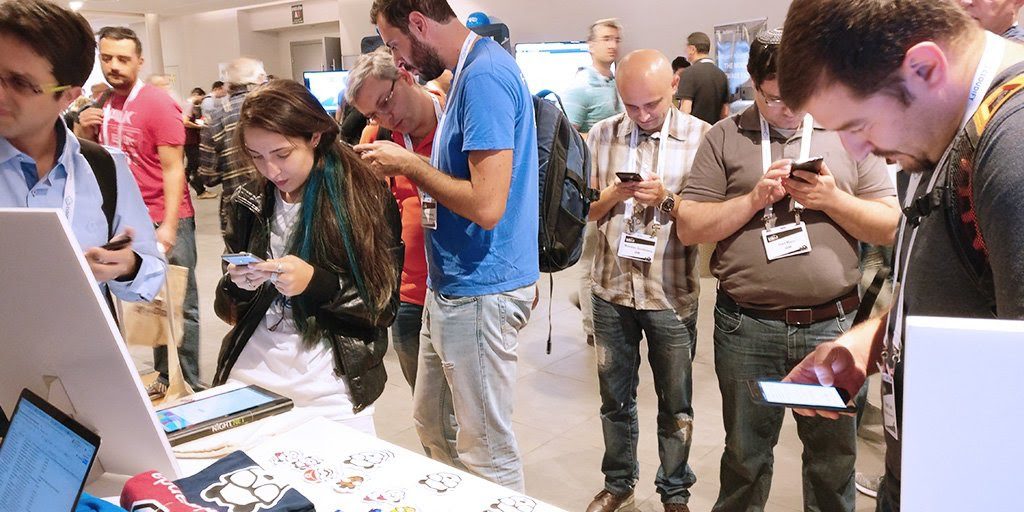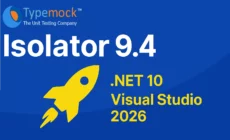Recently we visited the DevOpsDays conference in Tel Aviv, and thought to summarize our impressions from that day.
The conference is a worldwide series of technical conferences covering topics of software development, IT infrastructure operations, and the intersection between them.
At the Israeli event, one runs into a who’s-who of the hottest tech companies both in and outside of Israel: Facebook, Google Cloud, Microsoft, WalkMe, GitLap, Akamai, and logz.io, to name but a few.
How can we survive continuous innovation?
Empathy for users
- “The Phoenix Project: A Novel about IT, DevOps, and Helping Your Business Win” – according to Goasguen this is a very light and fun read: “It’s like a novel…”
- “The Mythical Man-Month: Essays on Software Engineering, Anniversary Edition”
Who of our readers has read these books?
The Theorist of Constraint
Dealing with the Legacy Code Mess
Before we returned to work, we listened in to the ‘open space’ discussion on how to deal with legacy code. Legacy code has been described as “the code no-one wants to deal with any more” and this was expressed by many attendees of this discussion. People sat in a circle and very quickly the discussion began to feel like a support group meeting in which the participants shared their accounts of traumatic encounters with legacy code.
#DevOpsDays Tel Aviv #DoDTLV pic.twitter.com/8um06xDFxt
— DevOpsDays Tel Aviv (@DevOpsDaysTLV) November 14, 2017
Though a solution wasn’t found during this discussion, just dealing with the burden collectively felt like some kind of recovery. Hope spread with the realization that a legacy code doesn’t necessarily need to be a bad thing as long everything functions as it was intended – no matter in what language it was written and how old it is.
Accepting the code for what it is was another conclusion that helped the group. It is said that acceptance is the first step towards rehabilitation, and it definitely felt comforting to learn that companies and organizations such as Citi Bank, Visa and Mossad all have to deal with the issue and feel burdened by it. Someone mentioned that the company Wix rewrote their entire code four times. While this endeavor is possible for a young(ish) tech company, established institutions such as the Israeli Mossad are less likely to be flexible enough to make such drastic changes.
There is a constant fear of touching (and destroying) legacy code. However, as the German saying goes, ‘shared misery is half misery’ – this meeting may have helped some be less afraid.
These were some of our observations from the conference. Were any of you there as well? Did you enjoy it? There were other discussions that seemed interesting too:
If anyone attended these sessions and would like to share their impressions, we’d be happy to hear from you.







